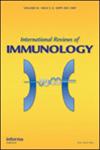肿瘤微环境中 T 细胞衰竭的分子图谱和重振策略。
IF 2.9
4区 医学
Q2 IMMUNOLOGY
引用次数: 0
摘要
通过利用免疫系统靶向癌细胞,免疫疗法已成为一种前景广阔的癌症治疗方法。然而,免疫疗法的疗效受到肿瘤微环境(TME)的阻碍,其中包括调节性T细胞(Tregs)、巨噬细胞、髓源抑制细胞(MDSCs)、中性粒细胞、可溶性因子(TGF-β、IL-35、IL-10)和缺氧。这些成分与 T 细胞上的抑制受体(IRs)相互作用,导致 T 细胞转录组、表观基因组和新陈代谢发生改变,最终导致 T 细胞衰竭,影响免疫疗法的效果。T 细胞衰竭分为两个阶段:衰竭前和衰竭。与末期衰竭的 T 细胞相比,衰竭前的 T 细胞表现出可逆性和独特的分子特性。了解这些差异对于设计有效的干预措施至关重要。这篇综合综述总结了衰竭前和衰竭T细胞的特征,阐明了TME成分对T细胞活性、转录组、表观基因组和新陈代谢的影响,最终推动了癌症中的T细胞衰竭。此外,还讨论了逆转衰竭的潜在干预策略。通过深入了解T细胞衰竭的内在机制和TME的影响,本综述旨在为开发创新方法提供信息,以应对T细胞衰竭并提高免疫疗法在癌症治疗中的疗效。本文章由计算机程序翻译,如有差异,请以英文原文为准。
The molecular landscape of T cell exhaustion in the tumor microenvironment and reinvigoration strategies.
Immunotherapy has emerged as a promising therapeutic approach for cancer treatment by harnessing the immune system to target cancer cells. However, the efficacy of immunotherapy is hindered by the tumor microenvironment (TME), comprising regulatory T cells (Tregs), macrophages, myeloid-derived suppressor cells (MDSCs), neutrophils, soluble factors (TGF-β, IL-35, IL-10), and hypoxia. These components interact with inhibitory receptors (IRs) on T cells, leading to alterations in T cell transcriptomes, epigenomes, and metabolism, ultimately resulting in T cell exhaustion and compromising the effectiveness of immunotherapy. T cell exhaustion occurs in two phases: pre-exhaustion and exhaustion. Pre-exhausted T cells exhibit reversibility and distinct molecular properties compared to terminally exhausted T cells. Understanding these differences is crucial for designing effective interventions. This comprehensive review summarizes the characteristics of pre-exhausted and exhausted T cells and elucidates the influence of TME components on T cell activity, transcriptomes, epigenomes, and metabolism, ultimately driving T cell exhaustion in cancer. Additionally, potential intervention strategies for reversing exhaustion are discussed. By gaining insights into the mechanisms underlying T cell exhaustion and the impact of the TME, this review aims to inform the development of innovative approaches for combating T cell exhaustion and enhancing the efficacy of immunotherapy in cancer treatment.
求助全文
通过发布文献求助,成功后即可免费获取论文全文。
去求助
来源期刊
CiteScore
11.00
自引率
4.00%
发文量
24
期刊介绍:
This review journal provides the most current information on basic and translational research in immunology and related fields. In addition to invited reviews, the journal accepts for publication articles and editorials on relevant topics proposed by contributors. Each issue of International Reviews of Immunology contains both solicited and unsolicited review articles, editorials, and ''In-this-Issue'' highlights. The journal also hosts reviews that position the authors'' original work relative to advances in a given field, bridging the gap between annual reviews and the original research articles.
This review series is relevant to all immunologists, molecular biologists, microbiologists, translational scientists, industry researchers, and physicians who work in basic and clinical immunology, inflammatory and allergic diseases, vaccines, and additional topics relevant to medical research and drug development that connect immunology to disciplines such as oncology, cardiovascular disease, and metabolic disorders.
Covered in International Reviews of Immunology: Basic and developmental immunology (innate and adaptive immunity; inflammation; and tumor and microbial immunology); Clinical research (mechanisms of disease in man pertaining to infectious diseases, autoimmunity, allergy, oncology / immunology); and Translational research (relevant to biomarkers, diagnostics, vaccines, and drug development).

 求助内容:
求助内容: 应助结果提醒方式:
应助结果提醒方式:


